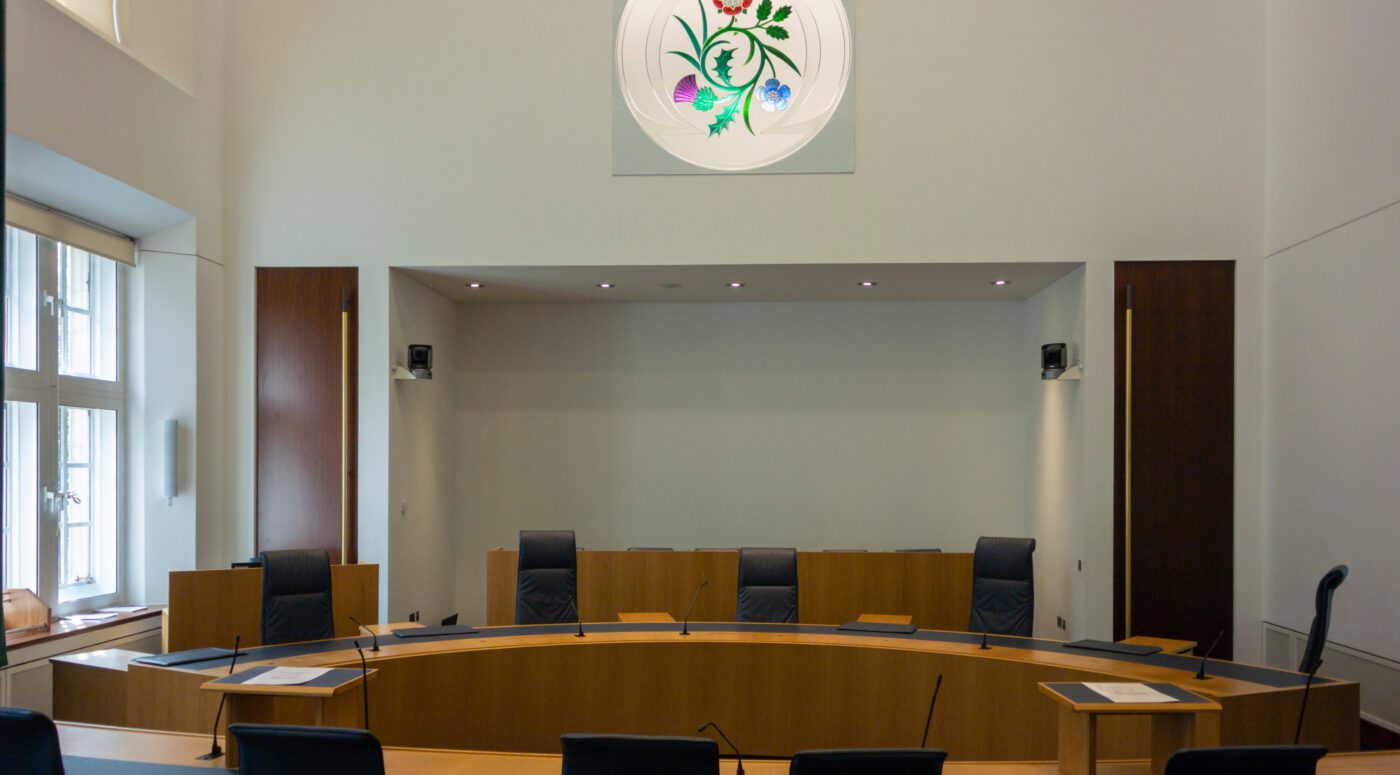

If you or someone you care about is being investigated for witness intimidation, it is important to understand exactly what this charge entails. In the UK, witness intimidation is when you try to make someone change their evidence or stop them from giving evidence in a criminal trial. This can be done through threats, violence, or any other means of coercion. It is a very serious offence, and if you are convicted, you could face a long prison sentence. In this article, we will provide an overview of the offence of witness intimidation, as well as some examples of witness intimidation and common questions about the offence, so that you can have a better understanding of what this charge entails.
What is a Section 51 offence in the UK?
Witness intimidation is a crime in the UK pursuant to Section 51 of the Criminal Justice and Public Order Act 1994. Witness intimidation is therefore often referred to as a ‘Section 51 offence.’
Section 51 creates two offences:
- 51(1) concerns acts against a person who is assisting in the investigation of an offence or is a witness or potential witness or juror or potential juror whilst an investigation or trial is in progress; and
- 51(2) concerns acts against a person who assisted in an investigation of an offence or who was a witness or juror after an investigation or trial has been concluded.
What are some examples of witness intimidation?
Behaviour that is capable of being charged as witness intimidation includes making threats to harm someone or their family if they testify, sending them threatening letters or emails, or damaging their property.
Witness intimidation can also include trying to influence what a witness says by offering them money or other benefits or threatening to harm them if they do not change their story.
Practically speaking, witness intimidation might look like:
- sending a letter to someone using cut-out pieces of newspaper print, trying to scare them into not testifying in a court case
- spray painting ‘snitch’ on someone’s house or vehicle
- standing outside someone’s house and staring at them through windows due to their involvement in a case
- following someone in an effort to control who they see or speak to in the lead up to a trial
- intimidating someone if they are due to give evidence against you or someone you are acting on behalf of in court
- following a juror home after the trial day has ended, making them realise that you know where they live
- verbally threatening someone with harm if they do not retract their statement
Can you be charged with witness intimidation if you are not the accused?
Yes. Section 51 of the Criminal Justice and Public Order Act 1994 applies to anyone who tries to intimidate a witness, regardless of whether they are the accused in the case or not. This means that, even if you are not facing charges yourself, you can still be charged with witness intimidation if you try to dissuade or prevent someone from giving evidence in a criminal case.
What does ‘influencing a witness’ mean?
The term ‘influencing a witness’ is often used in relation to witness intimidation. This refers to when someone tries to make a witness change their evidence or stop them from giving evidence altogether. This can be done through threats, violence or any other means of coercion.
It is important to remember that even if you do not succeed in making the witness change their evidence, you can still be convicted of witness intimidation. The test is whether you took steps toward trying to intimidate the witness, not whether you were ultimately successful.
What are the consequences of witness intimidation in the UK?
If you are convicted of witness intimidation in the UK, you could face a prison sentence of up to 5 years if convicted in the Crown Court, and a lesser sentence of up to six months’ imprisonment if you are convicted in the Magistrates’ Court. Additionally or instead of a custodial sentence, the court may order that you pay a fine or compensation to the victim. If you are found guilty of witness intimidation, it will also be noted on your criminal record.
A conviction for witness intimidation can have a serious and long-lasting impact on your life. If you are facing witness intimidation charges, it is important to speak to a solicitor as soon as possible to understand your legal options and ensure that you have the best possible defence.
Can you force a witness to give evidence?
In some cases, a witness may be reluctant to give evidence or may try to avoid giving evidence altogether. In these circumstances, the court has the power to ‘compel’ a witness to give evidence. This means that the witness can be ordered by the court to attend court and give evidence, even if they do not want to. If a witness refuses to give evidence when they are ordered to, the court cannot force them to speak but it can hold that person in contempt of court. This is a separate offence with its own penalties.
These powers do not, however, extend to individuals. Any individual found to be trying to force someone to give evidence, either through violence, threats of violence, or bribery, can be charged with witness intimidation under Section 51 of the Criminal Justice and Public Order Act 1994.
Can witnesses refuse to go to court?
Witnesses are not obliged to go to court if they do not want to. However, if a witness has been issued with a witness summons by the court, they must comply with the summons and attend court on the required date. If they do not, they may be found in contempt of court.
Are you allowed to talk to witnesses in a criminal case?
There is no general prohibition on simply talking to a witness in the case, unless the judge has specifically ordered you not to. In any case, out in the real world and away from the courtroom, that could be very hard to police. A solicitor, however, will advise you not to talk to any witnesses because anything you say to them could be used as evidence against you, and it could be interpreted as intimidation even if you did not intend for it to be.
Witnesses are given information about what potential witness intimidation looks like and they have access to help if they think they are being intimidated. Because of this, it is advisable that you stay away from any witnesses to the extent possible and avoid talking to them at all costs.
Can you call anyone as a witness?
No, not everyone can be called as a witness. A witness must have first-hand knowledge of the events in question in order to give evidence that is relevant to the case. Additionally, a witness must be deemed ‘competent’ to give evidence. This means that they are of sound mind and are able to understand and remember the events that they are testifying about.
If a witness does not have first-hand knowledge of the events or is not competent to give evidence, their evidence may be ‘hearsay’. Hearsay evidence is generally not admissible in court as it cannot be substantiated.
What makes someone a key witness?
A key witness is a witness whose evidence is particularly important to the case. Key witnesses are often pivotal in securing a conviction or acquittal. In some cases, key witnesses may be placed under witness protection if there are concerns for their safety.
Intimidation of key witnesses is taken more seriously precisely because the case hinges upon their testimony. Without their testimony, the prosecution may not be able to proceed. As such, witness intimidation of key witnesses can result in more serious penalties.
What happens if you intimidate a witness after they have given evidence?
If you are charged with witness intimidation and the witness has already given evidence, you will still face the same charges and penalties as if the witness had not given evidence. The fact that the witness has already given evidence does not make the offence any less serious. Section 51(2) of the Criminal Justice and Public Order Act 1994 created the offence relating to intimidation of witnesses in a case that has already happened.
Where to get more help with a witness intimidation charge?
If you have been charged with witness intimidation, or are being investigated for this offence, it is important to seek legal advice as soon as possible. An experienced solicitor will be able to assess your case and advise you on the strategy for moving forward, including on mounting a defence. For more information about witness intimidation charges and to arrange a free consultation, get in touch with the team at Stuart Miller Solicitors today.
OUR COMMITMENTS TO YOU:
-
Responsive
A legal expert will consult you within 24 hours of making an enquiry.
-
Empathetic
We will always treat you with trust, understanding and respect.
-
Specialised
Your case will be handled by an expert who specialises in your type of offence.
-
Proactive
We will take early action to end proceedings as soon as it is practically and legally possible to do so.
-
Engaged
You will be kept updated on your case at all times. We will provide a named contact available to answer your questions.
-
Caring
We understand this is a difficult and stressful time for you and your family. Our team will support you every step of the way.
-
Tenacious
We will never give up on your case. We fight tirelessly to get you the best possible outcome.

